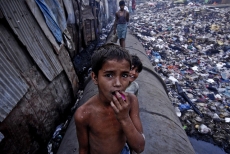The CPD Blog is intended to stimulate dialog among scholars and practitioners from around the world in the public diplomacy sphere. The opinions represented here are the authors' own and do not necessarily reflect CPD's views. For blogger guidelines, click here.
At various times I have heard public diplomacy programs referred to as “public relations” or simply as “propaganda”. It is a common misunderstanding. Public diplomacy is supposed to be about informing others about your society and how things work in a truthful and unvarnished fashion. It is not supposed to be about presenting a pretty picture or covering-up warts.
One of the more poorly understood aspects of public diplomacy is that it is not a tool for short-term policy goals. Public diplomacy is a tool with long-term benefits that are often difficult to measure. Public diplomacy is of limited value in short-term crisis situations. However, during a prolonged struggle, such as the Cold War, a sustained public diplomacy program can have profound effects. One public diplomacy program that is currently in play that bears watching is Poland's efforts with respects to its totalitarian neighbor of Belarus.
During recent testimony in front of the Senate's Foreign Relations Committee Secretary of State Clinton made a splash when she commented, "I remember having an Afghan general tell me that the only thing he thought about Americans is that all the men wrestled and the women walked around in bikinis because the only TV he ever saw was Baywatch and World Wide Wrestling.” She went on to comment about the effect American media has on the image of the U.S. abroad. Predictably, the significance of her remarks were lost in the usual cacophony of howls about Al Jazeera and Russian media.
The Brookings Institution's report on its proposed USA-World Trust has unleashed a predictable torrent of criticism from the public diplomacy community. To be sure, not all of the commentary has been negative, but much of it has been. The critics are rehashing many of the same tired arguments that have been used to kill any ideas to deal with today's public diplomacy realities.

In the new movie "Slumdog Millionaire" there is a poignant scene that all public diplomacy experts should have etched in their minds. It's of a classroom full of boys in a Mumbai slum inhabited by Moslems passing around one copy of the "Three Musketeers" as part of their English lesson. Later we watch one of those boys evolve into a gangster. He could just as easily have joined Al Qaeda. The scene takes place in the early 1980's, but I suspect that in spite of India's growth that similar scenes can be found today.
Since September 11th much of our nation's public diplomacy efforts have been focused, appropriately enough, on the Middle East and the Islamic world. However, while much energy and attention has gone to improve understanding of America and its policies in those regions another important sphere has been neglected. The Russian government is now clearly conducting a concerted effort to indoctrinate its people, particularly its young people, in anti-Americanism. America is hardly the Kremlin's only target. Indeed, the list is a long one -- Georgia, Ukraine, Estonia, Britain, etc.
Last March I wrote an essay for the Center's "Public Diplomacy Press and Blog Review" identifying what I believe to be a key problem with our nation's public diplomacy -- a lack of emphasis on informing people overseas about our nation's history. One thing that makes this an attractive approach is that it can be done for the most part with infrastructure that we already have in place. We don't need to reinvent the wheel.
Since the events of September 11, 2001 the foreign policy establishment of Washington has exhausted much energy debating America's public diplomacy efforts. I've watched this debate with interest because I work on a contract basis for State Department public diplomacy programs. I have also tried to create private sector public diplomacy projects. I've traveled with foreign journalists, politicians, and other notable figures all over the United States. You might say that I'm a "foot soldier" in the public diplomacy battle.
POPULAR ARTICLES
-
June 5
-
June 18
-
June 6
-
June 5
-
June 19
-
May 15
-
June 11
-
June 5
Featured Blogger
Join the Conversation
Interested in contributing to the CPD Blog? We welcome your posts. Read our guidelines and find out how you can submit blogs and photo essays >.








